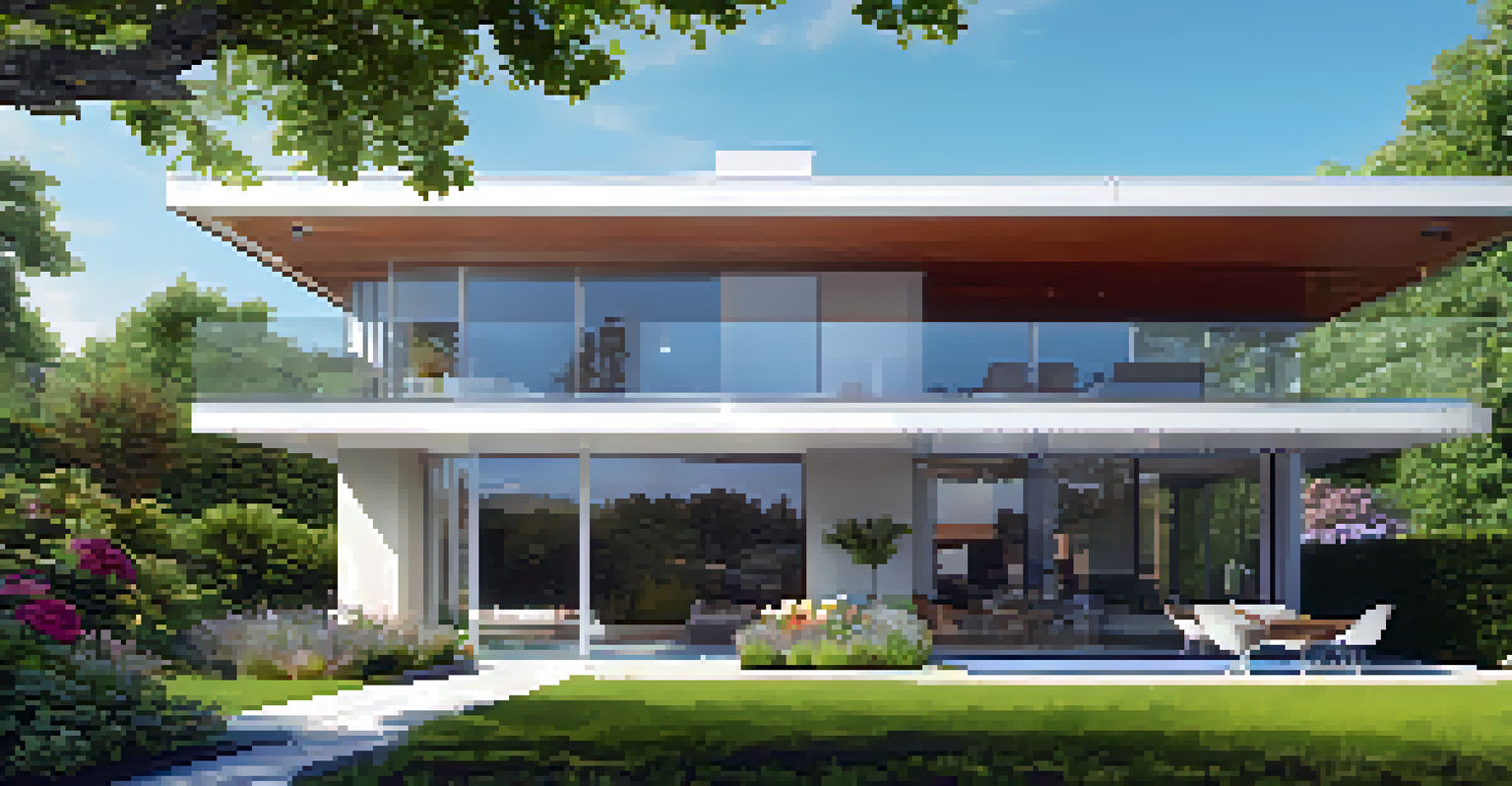Energy Efficiency Upgrades: Boosting Value and ROI

Understanding Energy Efficiency Upgrades and Their Importance
Energy efficiency upgrades refer to improvements that reduce energy consumption while maintaining comfort and functionality. These upgrades can range from installing better insulation to upgrading HVAC systems or replacing old windows with energy-efficient models. By enhancing how a property uses energy, homeowners can significantly lower their utility bills.
Energy efficiency is not just good for the environment; it’s also good for your wallet.
Moreover, energy-efficient homes are increasingly desirable in today’s market. More buyers are looking for properties that not only save money but also contribute to a sustainable future. This trend means that homes with energy-efficient features can sell faster and at higher prices.
In essence, investing in energy efficiency is not just about reducing costs; it's about enhancing the overall appeal of your property. As we dive deeper into specific upgrades, keep in mind the dual benefits of functionality and marketability that they provide.
The Financial Benefits of Energy Efficiency Upgrades
One of the most compelling reasons to invest in energy efficiency upgrades is the potential for significant financial savings. For instance, upgrading to Energy Star-rated appliances can reduce energy costs by up to 50%. Over time, these savings add up, making your initial investment worthwhile.

Additionally, many energy efficiency upgrades qualify for tax credits and rebates offered by local governments or utility companies. These incentives can help offset the costs of improvements, allowing homeowners to achieve a quicker return on their investment.
Energy efficiency lowers costs
Investing in energy efficiency upgrades can significantly reduce utility bills while enhancing overall property comfort.
Ultimately, the combination of lower energy bills and available incentives makes energy efficiency upgrades an attractive financial decision. This financial aspect is a key motivator for many homeowners considering these improvements.
Popular Energy Efficiency Upgrades to Consider
Several upgrades can enhance a home's energy efficiency, and they come in various forms. One popular option is improving insulation, which helps maintain a consistent indoor temperature and reduces heating and cooling costs. Similarly, installing energy-efficient windows can minimize heat loss during winter and heat gain during summer.
The greatest threat to our planet is the belief that someone else will save it.
Another effective upgrade is the installation of a programmable thermostat. This simple device allows homeowners to optimize their heating and cooling schedules, resulting in energy savings without sacrificing comfort. LED lighting is also a fantastic option since it uses significantly less energy than traditional bulbs and lasts much longer.
By exploring these popular upgrades, homeowners can choose solutions that best fit their needs and budgets. Each option not only improves energy efficiency but also contributes to a more comfortable living environment.
How Energy Efficiency Upgrades Enhance Property Value
Energy efficiency upgrades not only lower utility bills but also add tangible value to a property. Homes with modern energy-efficient features are more attractive to potential buyers, which can lead to higher sale prices. In fact, studies have shown that energy-efficient homes can sell for about 10-20% more than their less efficient counterparts.
Moreover, many buyers are willing to pay a premium for homes with lower operating costs. This trend is particularly evident in markets where energy efficiency is prioritized, as buyers recognize the long-term savings associated with these upgrades. Thus, energy-efficient homes often have a competitive edge in the real estate market.
Upgrades boost property value
Homes with energy-efficient features are more attractive to buyers and can sell for 10-20% more than less efficient homes.
Investing in energy efficiency upgrades is, therefore, a smart strategy for homeowners looking to increase their property’s value. It’s not just an improvement; it’s a long-term investment in the future of your home.
Assessing the ROI of Energy Efficiency Upgrades
When considering energy efficiency upgrades, it’s essential to assess the return on investment (ROI) they can provide. ROI measures the financial return from an investment relative to its cost. In the case of energy upgrades, the ROI can be calculated by comparing the annual savings on energy bills to the upfront costs of the improvements.
For example, if an upgrade costs $5,000 and results in annual savings of $1,000, the ROI would be 20%. This straightforward calculation helps homeowners prioritize which upgrades will yield the best financial returns. Additionally, many upgrades have a payback period of five to ten years, making them worthwhile investments.
Understanding ROI is crucial when deciding which upgrades to undertake. It provides a clear picture of the financial benefits and helps homeowners make informed decisions about their investments.
Choosing the Right Professionals for Upgrades
Once you’ve decided on the energy efficiency upgrades you want to pursue, selecting the right professionals to execute the work is vital. Look for contractors who specialize in energy-efficient renovations and have a solid track record. Reading reviews and asking for referrals can help ensure you find someone reliable.
Additionally, consider getting multiple quotes for your projects. This not only gives you a sense of the market rate but also helps you gauge the professionalism of the contractors. Don’t hesitate to ask questions about their processes and past projects, as this can provide insight into their expertise.
Sustainability benefits all
Energy efficiency upgrades contribute to sustainability efforts by reducing energy consumption and improving air quality.
The right professionals can make all the difference in the quality of the upgrades and their effectiveness. Investing time in selecting skilled contractors ensures that your energy efficiency upgrades are done correctly and yield the desired results.
Long-term Sustainability and Energy Efficiency
Energy efficiency upgrades do more than just boost property value; they contribute to broader sustainability efforts. By reducing energy consumption, homeowners play a part in lowering greenhouse gas emissions and conserving natural resources. This is especially important as climate change continues to be a pressing global issue.
Furthermore, energy-efficient homes often promote healthier indoor environments. Improved insulation and ventilation can reduce moisture levels and pollutants, leading to better air quality. This not only benefits the environment but also enhances the health and comfort of those living in the home.

Ultimately, investing in energy efficiency is a win-win situation. Homeowners save money, improve their living spaces, and contribute positively to the planet, creating a more sustainable future for all.